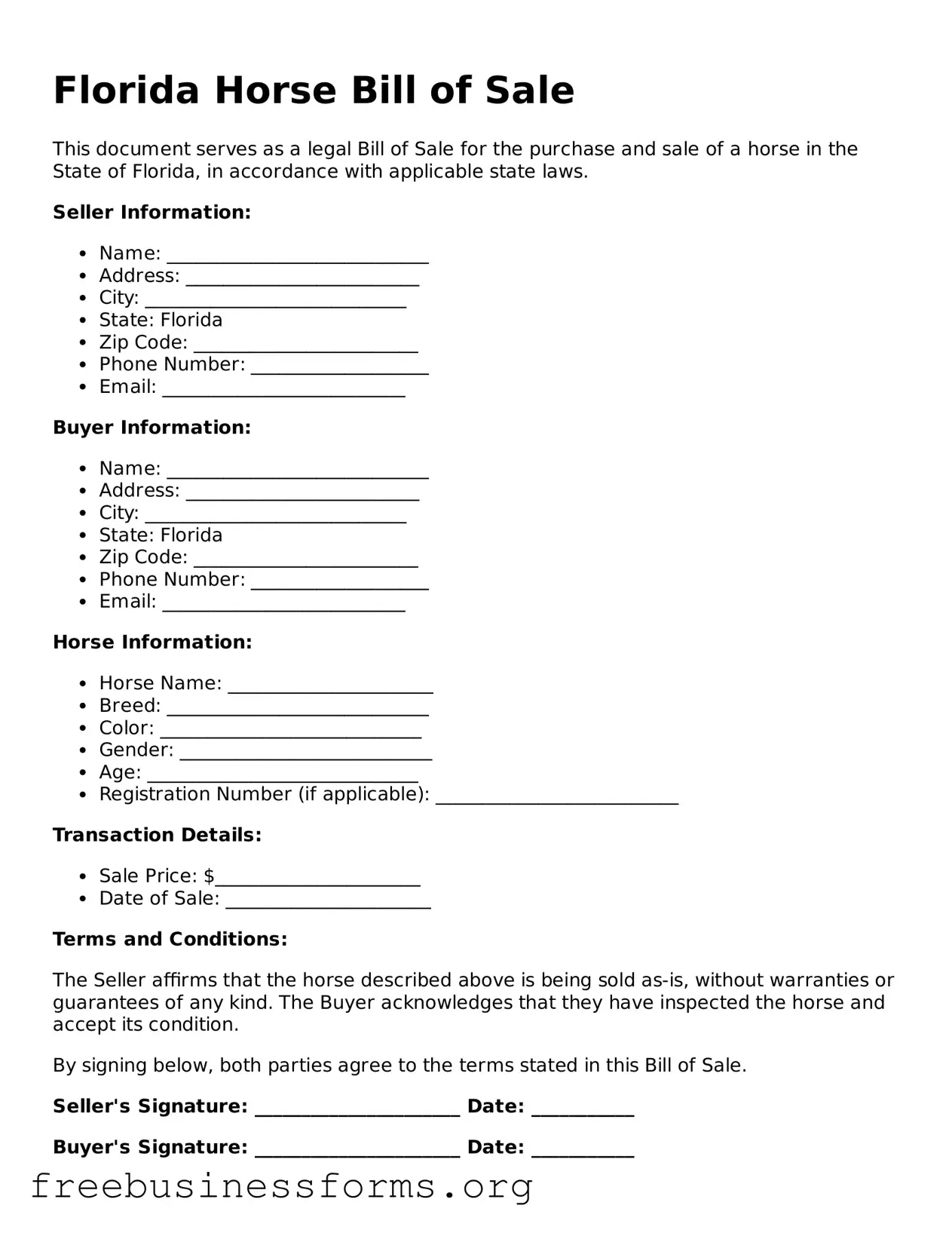Blank Horse Bill of Sale Template for Florida
The Florida Horse Bill of Sale form is a legal document used to record the sale and transfer of ownership of a horse in Florida. This form provides essential details about the transaction, ensuring both the buyer and seller are protected. Understanding its components can help facilitate a smooth and transparent sale process.
Open Form Here

Blank Horse Bill of Sale Template for Florida
Open Form Here

Open Form Here
or
↓ PDF File
Quickly complete this form online
Complete your Horse Bill of Sale online quickly — edit, save, download.